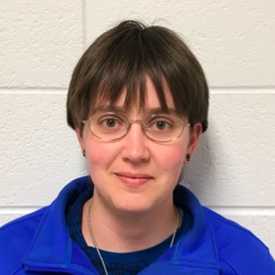Free-Fermion Subsystem Codes
Abstract
We consider quantum error-correcting subsystem codes whose gauge generators realize a translation-invariant, free-fermion-solvable spin model. In this setting, errors are suppressed by a Hamiltonian whose terms are the gauge generators of the code and whose exact spectrum and eigenstates can be found via a generalized Jordan-Wigner transformation. Such solutions are characterized by the frustration graph of the Hamiltonian: the graph whose vertices are Hamiltonian terms, which are neighboring if the terms anticommute. We provide methods for embedding a given frustration graph in the anticommutation relations of a spin model and present the first known example of an exactly solvable spin model with a two-dimensional free-fermion description and exact topological qubits. This model can be viewed as a free-fermionized version of the two-dimensional Bacon-Shor code. Using graph-theoretic tools to study the unit cell, we give an efficient algorithm for deciding if a given translation-invariant spin model is solvable, and explicitly construct the solution. Further, we examine the energetics of these exactly solvable models from the graph-theoretic perspective and show that the relevant gaps of the spin model correspond to known graph-theoretic quantities: the skew energy and the median eigenvalue of an oriented graph. Finally, we numerically search for models that have large spectral gaps above the ground-state spin configuration and thus exhibit particularly robust thermal suppression of errors. These results suggest that optimal models will have low dimensionality and odd coordination numbers, and that the primary limit to energetic error suppression is the skew energy difference between different symmetry sectors rather than single-particle excitations of the free fermions.
Publication Details
- Authors
- Publication Type
- Journal Article
- Year of Publication
- 2022
- Journal
- PRX Quantum
- Volume
- 3
- Issue
- 3
- Date Published
- 08/2022
- Pagination
- 21
